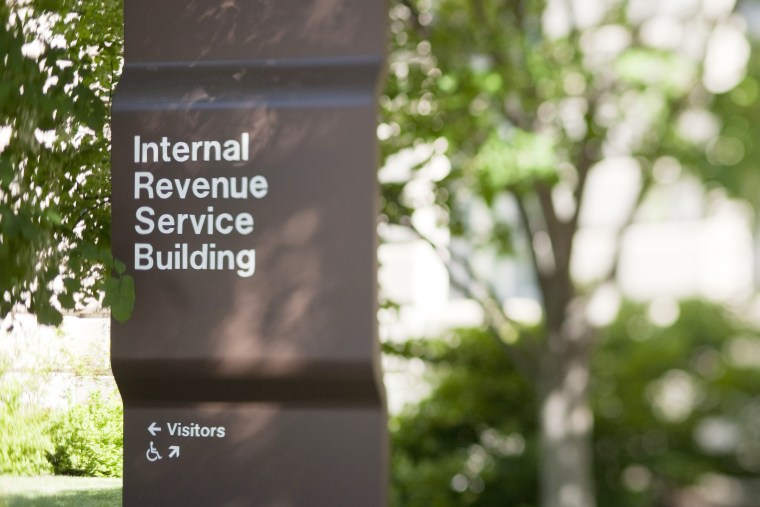Existing federal law on congressional access to tax returns is entirely straightforward. According to the statute, which has been on the books for nearly a century, the Treasury Department "shall furnish" tax materials in response to a formal request from one of a handful of congressional lawmakers, including the chairman of the House Ways and Means Committee.
With this in mind, when House Ways and Means Committee Chairman Richard Neal (D-Mass.) told Treasury officials to turn over Donald Trump's returns in early April, there was no wiggle room to exploit. Nevertheless, the Trump administration drew a different conclusion and said it could defy the letter of the law.
What we didn't know before last night, however, is that IRS lawyers have concluded that the Democrats' understanding of the law is the right one. As Rachel noted on the show, the Washington Post published the scoop:
A confidential Internal Revenue Service legal memo says tax returns must be given to Congress unless the president takes the rare step of asserting executive privilege, according to a copy of the memo obtained by The Washington Post. [...]But according to the IRS memo, which has not been previously reported, the disclosure of tax returns to the committee "is mandatory, requiring the Secretary to disclose returns, and return information, requested by the tax-writing Chairs."
The unsigned draft memo from the IRS's Office of Chief Counsel said that existing law "does not allow the Secretary to exercise discretion in disclosing the information provided the statutory conditions are met."
The Post spoke to one Treasury Department official who said the deliberations over Trump's tax returns were extensive and the outcome was predetermined. "The decision has been made," the official said. "Now it's up to us to try to justify it."
Or put another way, it was up to Trump administration officials to think of a way to ignore not only the law, but an IRS legal analysis of the statutory requirements.
It's worth noting for context that the document was reportedly prepared in the fall, and in this case, the timing is of interest. It was, after all, in the fall when voters rewarded Democrats with control of the U.S. House, raising the very real possibility of a heated fight over the president's secret tax materials.
Soon after, Trump became personally involved in pushing Senate Republicans to confirm Michael Desmond, his choice to become the IRS's chief counsel. Desmond, as it turns out, was partners at a D.C. law firm with Trump's current tax attorneys, and he conceded during his confirmation hearings that he may have advised the Trump Organization on tax matters.
Senate Republicans confirmed Desmond anyway, and as things stand, no one at the IRS is willing to say whether Desmond considered recusing himself from matters related to Trump, or whether he consulted with IRS ethics officials.
Looking ahead, the fight is almost certainly headed to the courts, where it's likely this newly leaked IRS memo will be a relevant piece of evidence.
And what about the possibility of a presidential claim of executive privilege? I'm not at all sure how that would even work -- executive privilege is generally applied to keep presidential deliberations private, not hide tax documents -- and as the Post's article added, the IRS legal analysis said existing law "'might be read to preclude a claim of executive privilege,' meaning the law could be interpreted as saying executive privilege cannot be invoked to deny a subpoena."
There's a reason this issue seems to make Trump very nervous.
